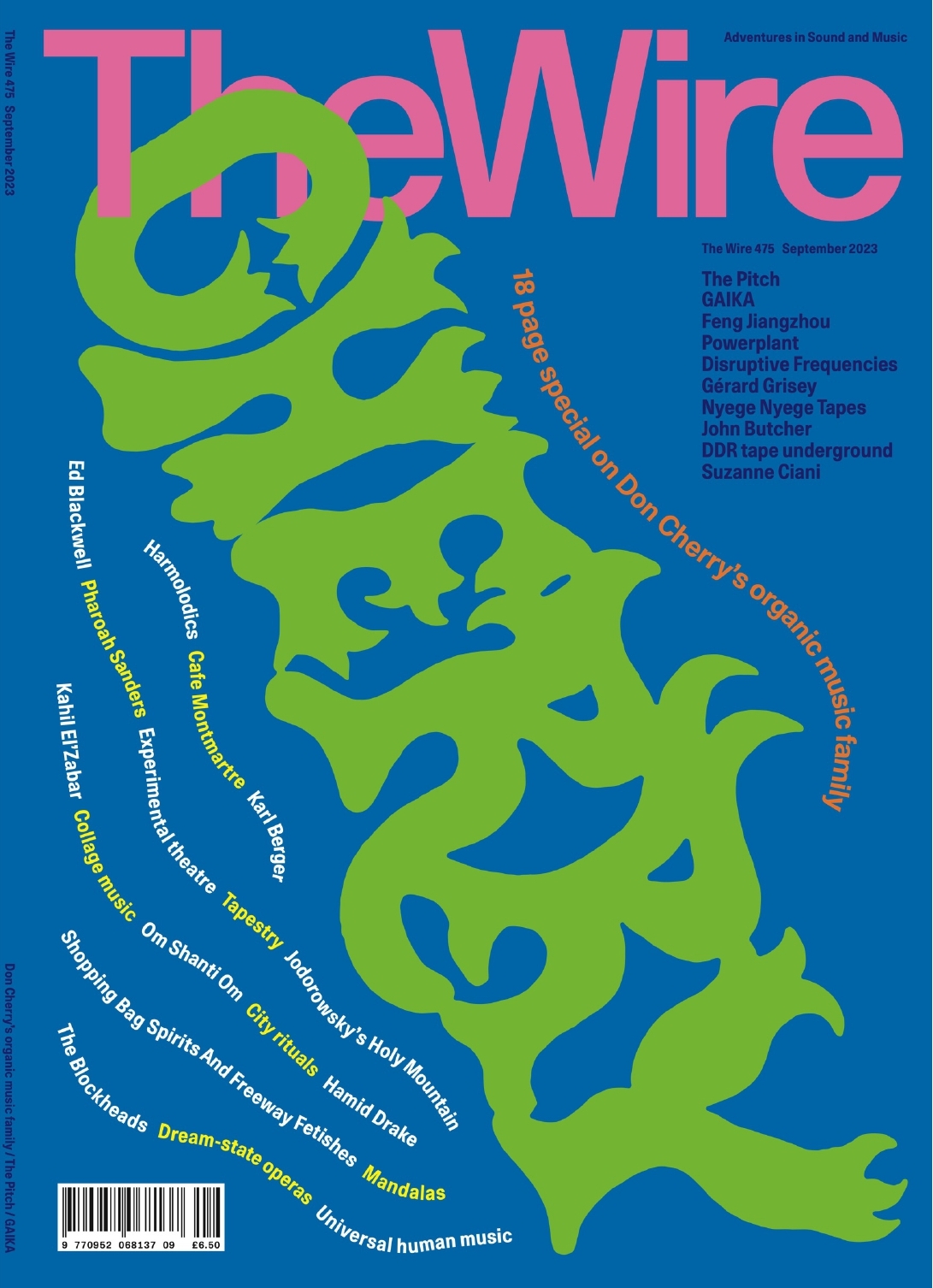
The stalwart of Beijing’s experimental rock and noise scene has been ahead of his time for the past 30 years. Now he returns with the dirtiest underground band in China, The Fly
KEEPING IT WEIRD
“People kept saying The Fly didn’t belong to that time, the 90s. They said we’re ahead of time and I didn’t think so,” declares Feng Jiangzhou. Formerly known as the critic Rock Professor, he always saw his own music as purely amateur. He was 29 when he founded The Fly in 1993. The line-up has changed several times, but with two Japanese musicians, guitarist Koji ‘Nish’ Takahashi and bassist Atsushi Sato, plus drummer Guan Fei, Feng made two albums, The Fly I and The Fly II. With poetic lyrics suffused with images of maggots and shit, their mix of grunge punk, no wave, noise, jazz, ska and reggae won them the foreign media’s dubious accolade of being “China's first, dirtiest and most grunge super fly men”.
After Takahashi died last year, Dong Yaqian from Omnipotent Youth Society (OYS), and Wang Zhe, the instrument engineer and instrument maker from OYS’s recording studio and label Cable Temple, joined The Fly for their 30th anniversary special in July. And in November, they will undertake their first and last tour. “The last performance we had before then was in Malaysia in 2004,” recalls Feng. “But The Fly have never toured before. Back then, there were almost no audiences, no venues, no festivals and no record companies to sign underground bands! It was very easy to become famous,” he adds. “In the meanwhile, you’re famous for nothing.”
Aside from The Fly, Feng had kept himself busy making solo digital hardcore influenced by Atari Teenage Riot. “I’m not that into the perfectness and tightness within electronic music,” he explains. “It’s also very personal. ATR sampled drums and guitars and arranged songs like a band. I really liked it.”
Feng hadn't so much killed off The Fly as put them into hibernation to continue the solo electronic explorations he’d begun on albums like 516 Man (2000) and Noise Not For Sale (2001). And in 2006, he shifted his focus from recording to video, installation and stage work at home and abroad, at festivals in France, Denmark, Germany and Italy, as well as collaborating with influential theatre director Meng Jinghui and film director Zhang Yimou, among others.
Meanwhile, what goes around comes around, and true to its nature, The Fly buzzed back into focus in 2019, when Shen Gun, founder of the Psychic label dedicated to releasing out of print or unissued works of the early 21st century Chinese avant garde, approached Feng about reissuing The Fly I. The pair got on well, with Shen Gun becoming Feng’s manager and encouraging him to make new music and perform again. The album Xuxiu compiled his recent multimedia theatre music. “Similar to soundtrack music, works like this don’t have to be complete,” remarks Feng. “We need to leave spaces for stage design, lightings and actors, which will then merge as a whole work.”
He was invited to perform at Shenzhen’s Tomorrow Festival that year. Besides Xuxiu, he designed a timeline to show three stages of his works, bringing the audiences back to the old times. This performance somehow overcame his concerns that The Fly had been deified during their absence. “I refused to perform in recent years before Shen Gun asked me, because I thought my music was outdated and strange,” says Feng. “But young people like it. They don’t listen to music like us. With very limited information, we used to listen bit by bit. They think this music is fresh.”
In September 2022, Feng released his new album Zhazha on the Badhead Label. Made at home during the pandemic, he named it after the Chinese word for crumbs because that’s the way his eight year old son Feng Yifeng saw his music: scattered, dropped and forgotten. Yifeng’s drawings also make up the cover artwork. To support the album and the soon to be released Baobaohong, he undertook his first ever solo tour in May. For the live visuals used on this tour, he drew on materials constructed in his new media studio Sifenlv: two red balls attracting and repelling each other like magnets; shifting and collapsing Chinese characters; shadow puppets coming to life. Live visuals don’t have to directly illustrate the music, Feng insists, adding, “Performing is not just for myself. The visuals will help the audiences to be there and resonate. It’s important to consider for the audiences.”
In keeping with his shadow puppet imagery, Feng has also dropped samples of the Chinese traditional string instrument erhu, Mongolian long song and model operas on albums such as Noise Is Bad For Health (2006). “Shen Gun asked me to use more concrete images to attract the audiences,” sighs Feng. “I was annoyed. I actually preferred abstract images and kept arguing with him. But in the end, I agreed. I’m not performing for myself. Shen Gun knows more than me about this industry and the audiences’ needs. I also discussed the arrangements of the tunes with him.
“I used them only because I was also unfamiliar with them,” he clarifies, “I don’t have to prove I’m Chinese when I’m Chinese. Now I’m making music again because of all these stimulations. I’m still looking for strangeness when I’m doing it at this age.” ○ The Fly’s The Fly I and The Fly II are released by Hard Core Pop.
Feng Jiangzhou’s Zhazha is released by Badhead. Baobaohong will be released by Cable Temple
Anla Li
September 2023
First published on The Wire. Copyright © The Wire magazine.
https://www.thewire.co.uk/home/